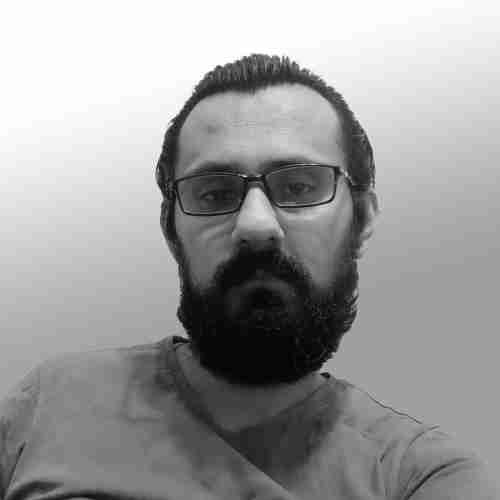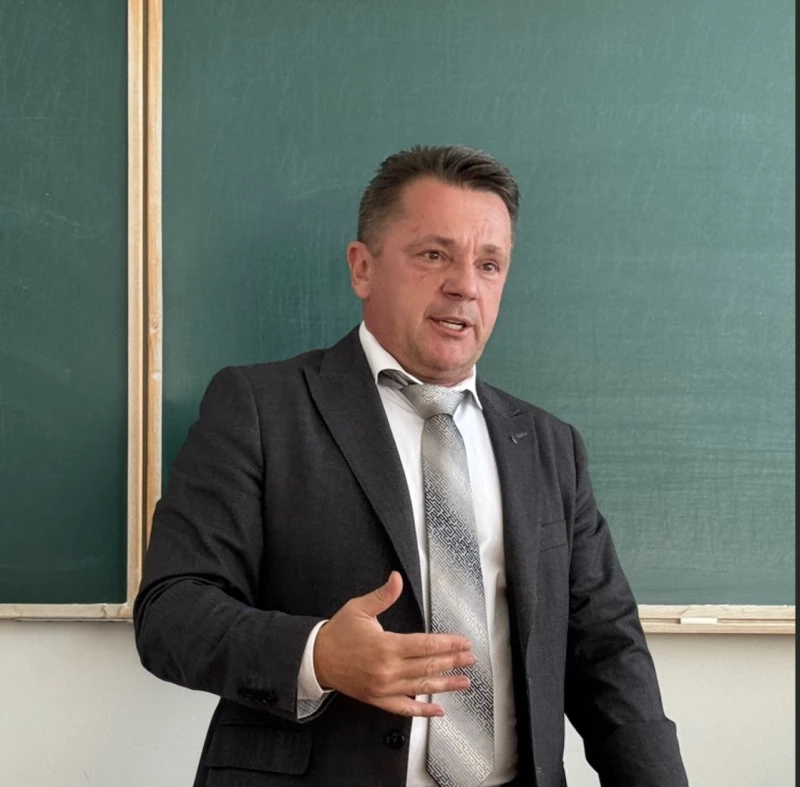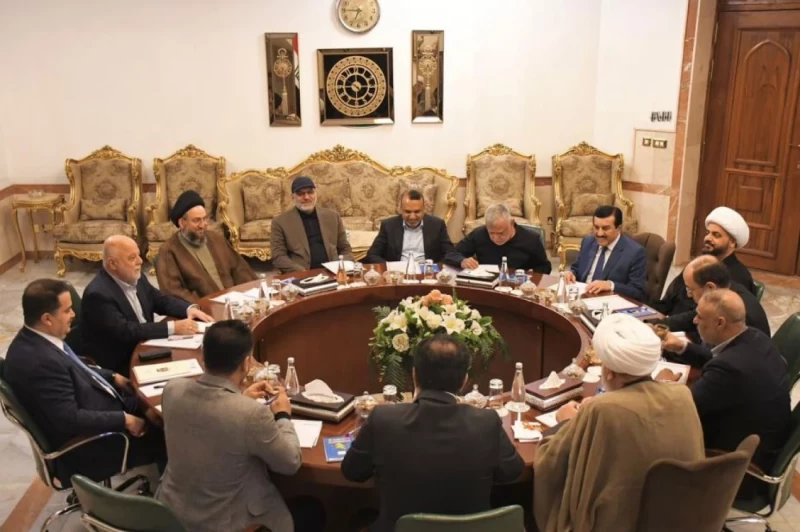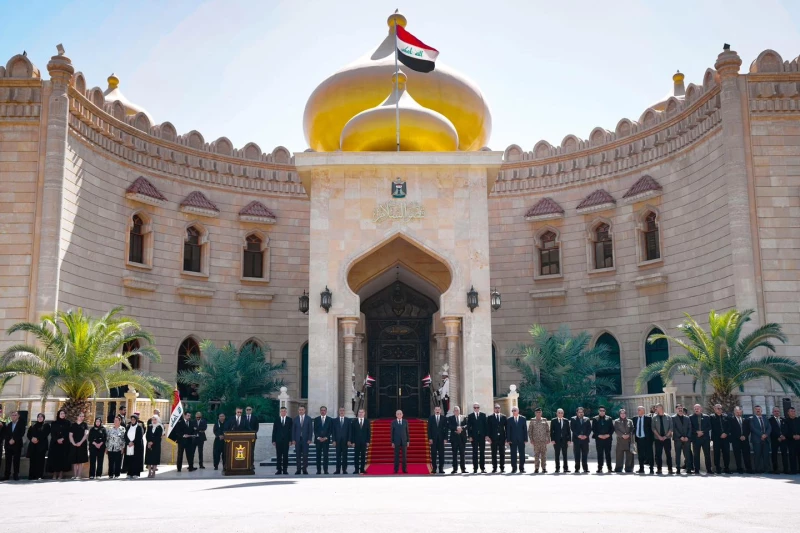In a bold new initiative, the leader of the Sadrist movement is making concerted efforts to expand his support base within the Shiite community. His objective is to attract a broader spectrum of followers by championing the inclusive tenets of Shiism, rather than solely depending on his familial connections and the allegiance of his father's loyalists.
This strategic pivot is occurring amidst speculations hinting that Muqtada al-Sadr might not achieve the same electoral triumphs as in previous elections. Anticipations lean towards a notable decrease in his party's parliamentary representation.
Named "The National Shiite Movement," the latest initiative by the Shiite leader stands as a conspicuous acknowledgment of diminishing backing for his agenda. In response, he has launched a concerted effort to expand his appeal among the broader Shiite community, while also seeking to attract certain blocs aligned with the Coordination Framework to his side.
Yet, this strategic shift opens the door to the possibility of other movements adopting similar component-based names, like the hypothetical "National Sunni Movement," potentially pushing the nation further into the realm of overt sectarianism.
The recent moves by the Sadrist movement, notably the recent change in name and the instruction to its followers to cease participating in Hussainiya processions linked with the movement's identity, choosing instead to merge more extensively with other processions, represent a clear departure geared toward escaping political isolation.
This strategic shift, as explained by political analyst Haider al-Moussawi, is seen as the first move toward dismantling the movement's political isolation.
Moussawi contended that Sadr has acknowledged the significant influence wielded by the Coordination Framework across the wider Shiite community. This recognition has led him to realize the drawbacks of confining his efforts solely to the Sadrist movement.
"With his current base of support, it's crucial for him to expand his influence into other sectors within the Shiite community," Moussawi explained, "to prevent the Shiite landscape from being exclusively dominated by the Coordination Framework."
Before the name change, a significant announcement was made regarding the cessation of the Sadr family procession, coupled with Sadr's urging for his followers to participate in a wider array of Shiite community events, including processions, religious assemblies, and Hussainiya rituals.
This calculated action, highlighted by Moussawi, clearly indicates Sadr's determined endeavors to reduce the prominence of the Sadrist identity and promote greater unity within the broader Shiite community.
The political analyst suggests that "Sadr might be setting the stage to take on a more expansive role as a Shiite religious figure, particularly in preparation for the post-Ayatollah Ali al-Sistani era and the subsequent vacuum within the Shiite community and seminary."
Moussawi pointed out that in images featuring Sadr, there is a deliberate presence of Shiite literature and sources such as "Mizan al-Hikma" and "Abdul Hussein Sharaf al-Din," intended to reaffirm his Shiite identity and counter any perception of deviating from Shiism.
Expanding on this, he explained that "Sadr has clearly acknowledged the growing importance of Shiite discourse in the post-2021 framework era, leading to his renewed embrace of Shiite rhetoric."
With the upcoming elections on the horizon, Moussawi expresses skepticism regarding the Sadrist movement's chances of reclaiming its former seat count, citing the possibility of the framework consolidating despite internal divisions.
However, he alludes to a potential new development: the emergence of a new alliance within the Shiite political landscape.
Sending shockwaves through political circles, Sadr officially renamed the Sadrist movement as the "National Shiite Movement" in a publication released at the beginning of April this year, coinciding with the expulsion of a significant faction within the movement.
During this period, instructions were given to halt processions associated with the "Al-Sadr Family" name, with supporters encouraged to participate in broader Shiite community religious gatherings instead.
These actions ensued after al-Sadr's initiation of political isolation in June 2022, which was highlighted by his retirement and the withdrawal of the "Sadrist Bloc" from parliament. This decision was made in response to an almost year-long political crisis aimed at expediting government formation.
Sadr, alongside the Kurdistan Democratic Party (KDP) and the Sovereignty Alliance, championed the formation of a national majority government. However, this proposal encountered opposition from the Coordination Framework forces, who advocated for a consensus government comprising all victorious parliamentary blocs—an approach rejected by Sadr and his allies.
Consequently, Sadr withdrew his participation, culminating in the creation of a consensus government incorporating all blocs, following the establishment of the State Administration Alliance.
New Alliances
The return of Sadr to the political arena has become “inevitable", according to Mujashi' al-Tamimi, an analyst closely associated with the movement. Tamimi highlighted several key indicators, including the reactivation of political and grassroots entities, as well as the renaming of the Sadrist movement to the National Shiite Movement. These developments collectively indicate that Sadr has made the decision to participate in the upcoming elections.
He further elaborated, stating that "Sadr's reentry into the political arena would be fruitless without his involvement in the upcoming elections, as participation has become both unavoidable and crucial."
However, Tamimi does not interpret the renaming of the movement as necessarily intended to fragment the Coordination Framework forces.
He explained that the framework is facing internal discord amidst difficult circumstances, illustrated by the ongoing unresolved formation of the Diyala government due to internal disputes.
"The framework is at a delicate point, and it's conceivable that some of its blocs may align with al-Sadr," he said.
"Sadr is willing to forge alliances with all parties, on the condition that there is a consensus on reforming Iraq's political system and moving towards a majority national government that is accountable to all,” he added. “He will not repeat past endeavors, such as his alliance with the Communist Party or brief alliances with various Shiite factions, or even partnerships with the Taqadum Party and the KDP. This time, he will proceed cautiously and ensure transparency regarding his alliances."
It is worth noting that the Sadrist movement opted not to take part in last year's provincial council elections. Instead, it was the Coordination Framework blocs, particularly in the central and southern provinces, that actively participated.
Interestingly, the framework entered the electoral arena through individual blocs rather than under its unified banner. Following the announcement of the election results, reports emerged indicating a potential alignment between Hadi al-Amiri, the Secretary-General of the Badr Organization, and Sadr, especially regarding certain positions in provinces where Badr secured top spots.
Amiri is considered one of the figures closest to Sadr and has previously played a crucial mediating role during political crises. He had considered the option of forming an alliance with Sadr before ultimately choosing to uphold his position within the Coordination Framework.
Faction within the framework
Political analyst Bassam al-Qazwini suggests that Sadr's strategic preparations for the upcoming phase have begun with the implementation of these measures, coinciding with a strengthening alignment between him and certain blocs within the framework.
Qazwini unequivocally indicates that Amiri has garnered acceptance from Sadr and might have a role to play in the forthcoming strategy. This strategy aims to address the challenges confronting the Sadrist movement and counter the accusations that have been previously directed towards it.
The political analyst further asserted that "over the past two years, the movement has effectively gained public support. It has successfully formed alliances with liberal factions, prominent religious figures, and even leaderships."
It is noteworthy that the leader of the State of Law Coalition, Nouri al-Maliki, has indicated his willingness to negotiate an understanding with Sadr regarding the upcoming parliamentary elections. Sources disclosed information about a meeting he convened with intermediaries, during which he expressed confidence in Sadr's intention to take part in the elections.
The schism between Sadr and Maliki dates back to 2007, when ministers from the Sadrist movement withdrew in protest against Maliki's refusal to set a timetable for the withdrawal of US forces from Iraq.
This action greatly diminished Maliki's influence, although the two later reconciled their alliance. However, tensions resurfaced when Maliki took the helm of the Coordination Framework, effectively obstructing Sadr's aspirations for a majority government in parliament.
Concerns
Political analyst Aqeel al-Taie confirmed that "the rebranding of the Sadrist movement to the National Shiite Movement is primarily an exit strategy aimed at pulling the movement out of political isolation and providing justification for its return to the political stage through engagement in elections.”
Taie did not rule out the possibility of factions within the Coordination Framework aligning with the Sadrist movement and potentially forming alliances in the elections.
However, he highlighted a trend among major Iraqi political parties since 2003, especially Islamic ones, to adopt broad and inclusive names rather than aligning with a specific sect. He warned against the emergence of a Sunni National Movement, contrasting it with the new name of the Sadrist movement, expressing concern about a return to sectarianism and division.



 Facebook
Facebook
 LinkedIn
LinkedIn
 Telegram
Telegram
 X
X


